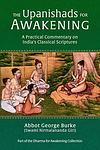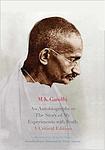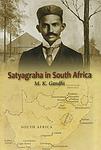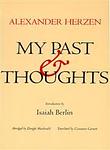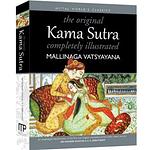The Greatest Russian, Roman, Indian "Nonfiction" Books of All Time
Click to learn how this list is calculated.
This list represents a comprehensive and trusted collection of the greatest books. Developed through a specialized algorithm, it brings together 305 'best of' book lists to form a definitive guide to the world's most acclaimed books. For those interested in how these books are chosen, additional details can be found on the rankings page.
Genres
Countries
Date Range
Reading Statistics
Click the button below to see how many of these books you've read!
Download
If you're interested in downloading this list as a CSV file for use in a spreadsheet application, you can easily do so by clicking the button below. Please note that to ensure a manageable file size and faster download, the CSV will include details for only the first 500 books.
Download-
1. Confessions by Augustine
"Confessions" is an autobiographical work by a renowned theologian, in which he outlines his sinful youth and his conversion to Christianity. It is written in the form of a long, introspective prayer directed to God, exploring the author's spiritual journey and deep philosophical ponderings. The book is renowned for its eloquent and deeply personal exploration of faith, making it a cornerstone of Christian theology and Western literature.
The 148th Greatest Book of All Time -
2. The Gulag Archipelago by Aleksandr Solzhenitsyn
"The Gulag Archipelago" is a comprehensive and stark account of the Soviet Union's forced labor camp system. The narrative, based on the author's own experiences as a prisoner and on extensive research, documents the history, operation, and life inside the Gulag system. It also provides a critical examination of the regime's legal system, police operations, and political leadership. The book is an intense indictment of the Soviet Union's totalitarian regime, revealing its brutality, inhumanity, and vast scale of its prison camp network.
The 193rd Greatest Book of All Time -
3. Meditations by Marcus Aurelius
"Meditations" is a collection of personal writings by a Roman Emperor, providing deep insights into Stoic philosophy. The book is a series of introspective reflections on how to deal with life's challenges with wisdom, integrity, self-discipline, and benevolent affection for all mankind. It serves as a manual for self-improvement and moral guidance, emphasizing the importance of accepting things outside of one's control and maintaining a tranquil mind amidst adversity.
The 390th Greatest Book of All Time -
4. De Rerum Natura by Lucretius
"De Rerum Natura" is a long didactic poem written in the first century BC, which explores Epicurean philosophy and the nature of the universe. The text delves into topics such as the nature of the gods, the atomic structure of the universe, human sensation and thought, and the fear of death. The author argues that understanding the physical world can free humans from superstition and fear, leading to peace of mind and true happiness.
The 491st Greatest Book of All Time -
5. Annals by Cornelius Tacitus
"Annals" is a historical work that provides a comprehensive account of the Roman Empire from the reign of Tiberius in 14 AD to the death of Nero in 68 AD. The author, a senator and historian of the Roman Empire, explores the inner workings of Roman politics, military campaigns, and social culture during this period. The book offers an in-depth look at the political machinations, power struggles, and the moral decay of the Roman elite, providing a critical perspective on the Roman emperors and their rule.
The 901st Greatest Book of All Time -
6. Upanishads by Hindu scripture
The book is a comprehensive compilation of ancient Hindu scriptures known as the Upanishads, which are fundamental to understanding the core philosophies of Hinduism. The text delves into profound spiritual teachings and philosophical dialogues about the nature of reality, the self, and the universe, providing invaluable insights into concepts such as karma, reincarnation, moksha, and the ultimate truth of existence. It serves as a guide to spiritual enlightenment and self-realization, offering timeless wisdom for introspection and personal growth.
The 927th Greatest Book of All Time -
7. Lives of the Caesars by Suetonius
"Lives of the Caesars" is a historical narrative that provides a detailed account of the personal and public lives of the first twelve Roman emperors, from Julius Caesar to Domitian. The author presents a vivid depiction of their character, behavior, appearance, and private lives, as well as their political actions, military exploits, and administrative policies. The book is a valuable source of information about the Roman Empire's early days, offering a unique perspective on the power, corruption, and extravagance of the Roman elite.
The 1325th Greatest Book of All Time -
8. The City of God by Augustine
The book is a philosophical and theological masterpiece, written as a defense of Christianity after the sack of Rome in 410 AD. The author contrasts the earthly city, characterized by pride and love of self to the point of contempt for God, with the heavenly city, characterized by love of God to the point of contempt for self. He argues that though the earthly city may seem dominant in the present age, the heavenly city will ultimately triumph. The book is a profound exploration of history, philosophy, religion, and the human condition.
The 1643rd Greatest Book of All Time -
9. The Story Of My Experiments With Truth by Mahatma Gandhi
This book is an autobiography that details the personal journey of a prominent leader who played a key role in India's struggle for independence from British rule. It explores his philosophy of nonviolent resistance and truth, which he refers to as "Satyagraha," and traces his development from a young, unsure boy into a principled activist committed to social justice. The narrative delves into his experiments with diet, celibacy, and other personal challenges, reflecting his quest for self-improvement and moral integrity, which he believed were essential for political leadership and social reform.
The 1687th Greatest Book of All Time -
10. Letters from a Stoic by Seneca
"Letters from a Stoic" is a collection of moral epistles written by a renowned Stoic philosopher. The letters provide practical guidance on everything from dealing with adversity and the pursuit of wisdom to the folly of consumerism and the nature of friendship. The author's stoic philosophy encourages peace of mind through understanding and accepting the natural order of the universe, and his letters offer timeless wisdom and insights that are still relevant today.
The 1703rd Greatest Book of All Time -
11. The Life Written By Himself by the Archpriest Avvakum
"The Life Written By Himself" is an autobiographical account by the Archpriest Avvakum, detailing his life as a religious figure in 17th-century Russia. The book chronicles his struggles, including his conflicts with the Russian Orthodox Church, his imprisonment, and his eventual execution. Avvakum's narrative provides a unique perspective on the religious and political climate of the time, showcasing his unwavering devotion to his faith and his unwavering determination to uphold his beliefs, even in the face of persecution.
The 1754th Greatest Book of All Time -
12. Histories by Cornelius Tacitus
"Histories" is a comprehensive account of the Roman Empire from 69-96 AD, a period marked by significant political turmoil. It provides an in-depth look at the reigns of four emperors: Galba, Otho, Vitellius, and Vespasian, along with the social and political upheavals of the time. The narrative also covers the Jewish rebellion and the burning of the Jerusalem Temple, offering a rich historical context of the period. Despite some gaps in the record, it remains a crucial primary source for understanding this era of Roman history.
The 1803rd Greatest Book of All Time -
13. Satyagraha in South Africa by Gandhi
This book is a personal account of the author's experiences during the Indian struggle for civil rights in South Africa. It details the development and implementation of the concept of Satyagraha, or non-violent resistance, as a means of combating social injustice. The book provides a unique insight into the author's philosophies and strategies of peaceful protest, including his belief in the power of truth and the necessity of self-sacrifice in the fight against oppression.
The 1864th Greatest Book of All Time -
14. Bhagavad Gita by Unknown
The book is a 700-verse Hindu scripture that is part of the Indian epic Mahabharata. It takes the form of a dialogue between Prince Arjuna and the god Krishna, who serves as his charioteer. On the battlefield of Kurukshetra, just as the war is about to begin, Arjuna is filled with doubt and moral dilemma about fighting in the battle. Krishna imparts spiritual wisdom and guidance to Arjuna, addressing his concerns and leading him through a profound discourse on various philosophical concepts, including the nature of life, the soul, and one's duties. The text covers topics such as righteousness, devotion, and the paths to spiritual liberation, ultimately encouraging Arjuna to rise to his duty as a warrior with the understanding that the true self is eternal and beyond physical conflict.
The 2018th Greatest Book of All Time -
15. My Past And Thoughts by Aleksandr Herzen
The book is a rich and vivid memoir by a prominent Russian intellectual and revolutionary who lived through a period of profound social and political upheaval. It combines personal narrative with philosophical reflections, offering a penetrating look at the author's life experiences, from his aristocratic upbringing to his involvement in radical politics. The work delves into the author's ideological development, his relationships with key figures of his time, and his observations on the social issues and political movements that shaped the 19th century. It is a testament to the author's profound engagement with the ideas of freedom, justice, and human agency in the face of an oppressive regime and a changing world.
The 2052nd Greatest Book of All Time -
16. My Childhood by Maxim Gorky
"My Childhood" is a poignant and powerful autobiographical account of a young boy's life in 19th-century Russia. The narrative explores the harsh realities of growing up in a dysfunctional family, with a cruel stepfather and an uncaring mother, against the backdrop of poverty and social unrest. The protagonist's struggles, resilience, and observations provide a vivid portrayal of the societal conditions of the time, while also illuminating the human capacity for hope and perseverance in the face of adversity.
The 2152nd Greatest Book of All Time -
17. State And Revolution by Vladimir Il’ich Lenin
This seminal political theory text delves into the role of the state in society and the necessity of proletarian revolution to dismantle the bourgeois state apparatus. It argues that the working class must seize state power, dismantle the existing state machinery, and establish a dictatorship of the proletariat as a transitional phase towards the creation of a classless, stateless society. The work critically analyzes the ideas of Marx and Engels on the state, while also addressing the practical aspects of revolution, including the suppression of the bourgeoisie by the proletariat. It serves as a theoretical foundation for understanding the dynamics of class struggle and the path towards socialism.
The 2241st Greatest Book of All Time -
18. Germania by Cornelius Tacitus
"Germania" is a historical and ethnographic work that provides a detailed description of the lands, customs, and tribes of the Germanic people in the first century AD. The author, a Roman historian and senator, offers a comprehensive account of the geography, anthropology, social institutions, and military practices of the Germanic tribes, often comparing their culture and values to those of the Romans. The work is considered a valuable source of information about the ancient Germanic tribes, despite its possible biases and inaccuracies.
The 2333rd Greatest Book of All Time -
19. Titi Livi Ab urbe condita libri by Livy
This historical work offers a comprehensive narrative of the history of Rome, from its mythical origins to the reign of the Roman Emperor Augustus. The author chronicles the major political, military, and social events of the Roman Republic, including the founding of the city, the establishment of the Republic, the Punic Wars, and the rise of Julius Caesar. The book is a significant source of information about the early history of Rome and is often considered one of the most important works of Roman history.
The 2400th Greatest Book of All Time -
20. Reflections of a Russian Statesman by Konstantin P. Pobedonostsev
"Reflections of a Russian Statesman" is an insightful exploration of the author's conservative and monarchist views on the political and social issues of his time in Russia. As a prominent figure in the Russian government, he provides a candid critique of western democracy, liberalism, and the separation of church and state. He advocates for autocracy, theocracy, and orthodoxy, arguing that these are the pillars of a stable and prosperous society. The book offers a unique perspective on Russian politics and society during the late 19th and early 20th centuries.
The 2678th Greatest Book of All Time -
21. The Way of a Pilgrim by Anonymous
"The Way of a Pilgrim" is a 19th-century Russian Christian text that follows an anonymous protagonist on a spiritual journey across the country. The protagonist is a wanderer who seeks to understand the teachings of the Bible and the nature of ceaseless prayer. Through his travels and encounters with various people, he explores the concept of the Jesus Prayer and the philosophy of the Eastern Orthodox Church. The book is a profound exploration of faith, spirituality, and the quest for divine connection.
The 2823rd Greatest Book of All Time -
22. Poetry by Quintus Lutatius Catulus
This book is a collection of ancient Roman poetry by a renowned statesman and poet. The poems reflect the author's experiences, thoughts, and feelings about life, love, politics, and society during the Roman Republic era. The author's eloquent and vivid writing style, combined with his astute observations and insights, make this book a valuable resource for understanding Roman culture and history.
The 2844th Greatest Book of All Time -
23. Kama Sutra by Vātsyāyana
This ancient Indian text is a guide to virtuous and gracious living that discusses the nature of love, family life, and other aspects pertaining to pleasure-oriented faculties of human life. It is a comprehensive manual on the art of love and sexual behavior, providing detailed advice on courtship, marriage, and the act of lovemaking. The text, while often associated solely with sexual positions, covers a wide range of topics including the duties and privileges of a wife, advice for courtesans, and methods to attract others.
The 2898th Greatest Book of All Time -
24. Catiline Orations by Marcus Tullius Cicero
"Catiline Orations" is a series of speeches given by a renowned Roman statesman, which were aimed at exposing and condemning the conspiracy led by Lucius Sergius Catilina. The speeches, delivered in the Roman Senate, are a masterful display of oratory skills and political acumen, as the statesman successfully manages to turn the Senate against Catiline, ultimately leading to his downfall. The book offers an in-depth study of these speeches, providing valuable insights into Roman politics, rhetoric, and the art of persuasion.
The 3093rd Greatest Book of All Time -
25. Natural History by Pliny (the Elder)
"Natural History" is an extensive work of literature that provides a comprehensive look at the knowledge of the natural world during the Roman era. The book is divided into 37 volumes, each focusing on different aspects such as geography, anthropology, zoology, botany, and mineralogy. The author's curiosity and fascination with the world are evident in his detailed observations and descriptions. The book also includes discussions on art, sculpture, and various other topics, providing a rich and detailed snapshot of the Roman understanding of the world.
The 3202nd Greatest Book of All Time
Reading Statistics
Click the button below to see how many of these books you've read!
Download
If you're interested in downloading this list as a CSV file for use in a spreadsheet application, you can easily do so by clicking the button below. Please note that to ensure a manageable file size and faster download, the CSV will include details for only the first 500 books.
Download




